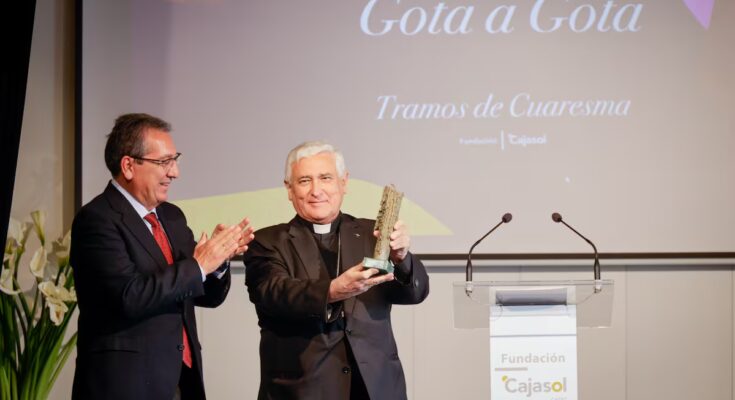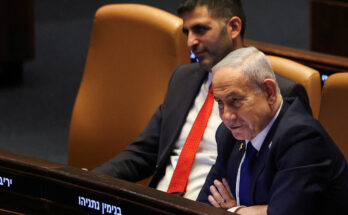EL PAÍS launched an investigation into pedophilia in the Spanish Church in 2018 and did a database updated with all known cases. If you know of any cases that have not seen the light of day, you can write to us at: Abusos@elpais.es. If it is Latin America, the address is: abusesamerica@elpais.es.
The bishop of Cadiz and Ceuta, Rafael Zornoza, investigated by the Vatican for alleged continuous sexual violence against a minor, has made dozens of controversial decisions since he arrived in the Andalusian city 14 years ago, but always with a very clear beacon: money. Unjust dismissals, unjustified evictions, appropriation of land and assets for the bishopric, as well as a trail of retaliation against internal criticism. He thus tried to count on the silence of the rest of the Catholic community of Cadiz, including the priests who defend a Church less linked to economic profit and more attached to the poor.
“He is very sectarian, very dictatorial, he doesn’t sympathise, he doesn’t dialogue and he only surrounds himself with those who applaud him. He only worries about how to make money, nothing to do with Christian values. His attitude is not evangelical, but worldly, he has the profile of a real estate entrepreneur, always looking for land, farms, apartments”, says Juan Cejudo, member of the Bahía de Cádiz group. of Christians for reflection and action, which without hesitation defines the controversial figure of Zornoza. And he adds: “We wanted a pastoral bishop who would dialogue with the priests, but who is autocratic, arrogant and a bishop not at all sensitive to social problems. These are positions incompatible with a normal Christian, let alone with a bishop.”
This group, which collected almost 300 signatures against the prelate, denounced his management, which lasted a decade and a half, before Pope Francis, the Spanish Episcopal Confederation, the Dicastery for the appointment of bishops and the Nuncio. No institution has moved in all these years to remove Zornoza, 76, despite internal complaints.
Regarding the accusation of pedophilia revealed this Monday, a cleric says on condition of anonymity: “Everyone knew it, including the nuncio. Letters have appeared and pedophilia is very old, there will be other victims, without a doubt.” The victim who reported her case to the Vatican recounts continuous sexual abuse in the 1990s. This newspaper tried to obtain the bishop’s version, which refers to the statement released on Monday morning.
Two decades later, in 2011, Zornoza landed in Cadiz with economic benefit as his flag and this time his victims suffered from the economic excesses of the bishop. A very controversial position, that of maximum return on capital, in a province that has always been plagued by unemployment, with very serious homelessness problems and the drama of immigration on the surface.
The last letter from the group of Christians from Cadiz to the ecclesiastical hierarchy, addressed in this case to the Dicastery for the appointment of bishops, José Cobo, in January 2024, distilled an unusual harshness against the prelate: “We need a more sensitive bishop, as the previous ones were (…). What the bishop says is contradicted by his actions, directing the diocese in an authoritarian way, dismissing workers from the bishopric without any contemplation and demonstrating every day that what really matters to him are not people, but material and economic goods. This is what really matters to him: controlling all the goods of the church, not to put them at the service of the most needy, but for the economic profitability of the church itself. The new evangelization What if we reduce it to simple marketing strategies?” they asked.
In 2013, Catholic bases in Cadiz asked the bishop to enable part of a seminary, which can accommodate 150 people and is occupied by only a dozen, to allow homeless people and refugees to enter and exit the streets, which are heavy with humidity because the city is surrounded by the sea. But the bishop refused to facilitate it. Only two priests have publicly criticized his management, but the retaliation has been very harsh, sources in the case say.
Among the accusations made by Zornoza, the director of the diocesan Cáritas, Juan Luis Torrejón, stood out for having refused to allocate the money of this organization to other purposes of the Church. “The former director of the ecclesial entity publicly denounced, and continues to do so, that the bishop removed him from his position for refusing to allocate poor people’s money to other church purposes, such as contributing 13,000 euros to an audit of the bishopric or paying rent to the church for a center that Cáritas had relocated and rehabilitated with its own funds and subsidies,” reads the letter from the group of Christian complainants.
During his nearly three decades in Cadiz, Zornoza fired parish priests, clashed with numerous priests, fired about twenty bishop employees and withdrew the rents of their premises from secular businesses, such as the Rincón del Madueño bar. Meanwhile, other people have had to abandon their homes because they cannot pay the rent increases imposed by the bishopric. Among his most controversial decisions, many religious people expressed their protest against a decree issued by the bishop to further supervise parishes and grant new powers to the diocesan bursar to directly access the accounts of each parish. “This issue has sown great distrust and caused the rejection of many priests,” summarized the critical Christians.
Ildefonso Portillo, 73, is a good example of the greed that many critical voices denounce in the Andalusian city. Portillo and his wife had worked as a guard and bricklayer since 1975 in the cloistered Capuchin convent of San Fernando, until the nuns left eight years ago. “The bishop ordered the Capuchins to expel us, but they refused to obey. Until they left and I received the burofax from the bishopric to expel us, after having worked day and night for decades for the Church”, says Portillo with a bitter taste in his mouth.
The man asked the diocese for a solution but did not obtain it, as he does not have resources, and appealed to the Supreme Court after Zornoza’s lawyers won the case in first and second instance. At the moment Portillo is holding out in his home, but the work on the chapel and convent has already begun after the modification of the General Plan approved by the island’s municipal council and the appeal is now pending before the High Court.
“I only ask for a different attitude to help me or lend me a house while I live, not for my children, but for us, who will find ourselves in poverty, with one hand in front and one behind. My wife was never discharged and they paid me the minimum wage and I gave up many raises that were due to me. I believe in God, but I was disappointed by this despotism”, he adds.
One of the people who has fought in court against the Bishopric of Cadiz for the last ten years, concludes under anonymity: “For Zornoza, the inhabitants of Cadiz are troglodytes, he removed the priests from their posts to bring more pliable ones from Madrid. Many complaints about the economic irregularities of the bishopric have just been demonstrated, because the bishopric presented a profit of 1.8 million, according to the transparency portal on its website. Do you know the number of people “That they are going through a difficult time so that the Church can boast of having benefits in Cadiz?”



